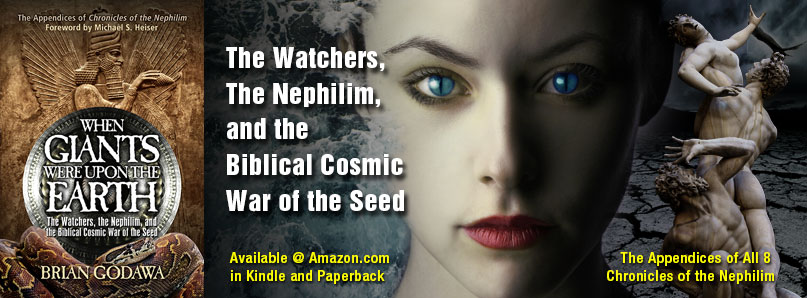Maybe Deliver Us From Evil is just another demon possession movie that’s combined with a cop crime story.
But I doubt it.
Written and Directed by Scott Derrickson, this movie is inspired by the true story of Ralph Sarchie, a New York cop who encountered murders involving demon possession. He joins up with a Roman Catholic exorcist to solve the crimes, and in the process, he rediscovers his lost faith.
Okay, horror is not for everyone. But in this modern world that denies the supernatural, along with God, sometimes the best way to break through the rabid materialistic worldview of our culture is through horror. It’s a kind of apologetic that proves God by proving supernatural evil. If people believe there is a devil, it’s a pretty self-evident corollary that there is a God.
 What I like most about Derrickson’s cinematic portrayal of demon possession (This and The Exorcism of Emily Rose), is his understated realistic approach. He doesn’t rely on special effects gimmicks or make up that are impossible in the real world. The things that happen are mostly the kind of things that really do happen in demon possession cases. So no heads turning around or impossible levitations. Don’t get me wrong, there are contortions, dilated pupils, cuts appearing on bodies, and even preternatural strength and multiple voices. But these are all documented around the world to have occurred in such cases. He doesn’t “Hollywoodize” that stuff to an unbelievable extreme, which is what makes a lot of other demon movies just goofy. I’m not against adding fantasy or beefing it up if you are playing to certain genre demands. I’ve done so myself. But when you are dealing with true stories like Derrickson does, it makes it more scarier to be more realistic.
What I like most about Derrickson’s cinematic portrayal of demon possession (This and The Exorcism of Emily Rose), is his understated realistic approach. He doesn’t rely on special effects gimmicks or make up that are impossible in the real world. The things that happen are mostly the kind of things that really do happen in demon possession cases. So no heads turning around or impossible levitations. Don’t get me wrong, there are contortions, dilated pupils, cuts appearing on bodies, and even preternatural strength and multiple voices. But these are all documented around the world to have occurred in such cases. He doesn’t “Hollywoodize” that stuff to an unbelievable extreme, which is what makes a lot of other demon movies just goofy. I’m not against adding fantasy or beefing it up if you are playing to certain genre demands. I’ve done so myself. But when you are dealing with true stories like Derrickson does, it makes it more scarier to be more realistic.
Now, while I didn’t find this one as scary as say Emily Rose or other demon possession movies like Paranormal Activity or The Last Exorcism, it is still compelling with its share of frights and a couple of eerie shots that make your skin crawl. His demonic “floor scratching” sounds (a common element of the genre) are the scariest I’ve ever heard. Scariness can be a very subjective thing, and the more you’ve seen, the less seems scary. So if you don’t normally watch horror, this will probably be plenty scary.
What I really found fascinating was the priest who teamed up with the cop. The priest, Mendoza, breaks all the stereotypes of priests in movies. He’s young, not old; cool, not archaic, flawed, not holy, forgiven, not judgmental, and best of all, the wise mentor, not the fool. As Sarchie uncovers the spiritual reality behind the murders, he struggles with his own lost faith. But the essence of the spiritual battle is brought out with Christian clarity like I’ve never seen before in a horror movie. In one moment, the priest tells him something like, “You have seen a lot of evil in your job, no doubt. But that is secondary evil. But until you’ve seen primary evil, you do not know true evil.” And of course, demonic evil is primary evil.
 But the priest is not a false holy monk, either. He’s a real sinner, who sinned grievously AS A PRIEST. But what makes this portrayal so different from all the other movies that try to make priests out to be all secret adulterers and child molesters and hypocrites, is that this one shows a priest who confesses that sin and repents and turns back to God. That is grace. That is what the secular world cannot understand. Because Derrickson is a Christian, he can bring that kind of nuance and complexity to a spiritual character as flawed but heroic. This is the director that should be directing the next movie on King David, not another Hollywood secularist trying to subvert a sacred narrative.
But the priest is not a false holy monk, either. He’s a real sinner, who sinned grievously AS A PRIEST. But what makes this portrayal so different from all the other movies that try to make priests out to be all secret adulterers and child molesters and hypocrites, is that this one shows a priest who confesses that sin and repents and turns back to God. That is grace. That is what the secular world cannot understand. Because Derrickson is a Christian, he can bring that kind of nuance and complexity to a spiritual character as flawed but heroic. This is the director that should be directing the next movie on King David, not another Hollywood secularist trying to subvert a sacred narrative.
SPOILER ALERT: The priest explains that the cop must confess his sins because our unrepented sins are the dark secrets that supernatural evil can use against us. Wow. Only when Sarchie confesses his sins, is he “covered” by God’s power. This is all done in the context of Roman Catholicism, where Sarchie confesses to Mendoza, who then says, “I absolve you.” So anti-Catholics will not like this. Those less bothered by theological distortions, will argue that it WAS his experience that is the story, and the principle behind it is true, that confession of sins to God and forgiveness is our redemption and power to fight such primary evil (distortions notwithstanding).
Another problem as I see it with the genre is that demon possession movies all must end with the third act as the Exorcism sequence. This makes it so hard to come up with something new. Cause it’s usually a priest and others in a room repeating the exorcism ritual as the person manifests supernatural reactions. What have we not seen before? Many times movies try to outdo each other with more spectacular effects, but again, Derrickson does not bow to that cheap way out, though he certainly has a few goodies to offer.
Again, they use the Roman Catholic ritual of exorcism. Look, I realize that they do use that in real life, AND I realize it is more cinematic to engage in a ritual that has progression to it. But I’ve always hoped that people don’t think that recounting words like some kind of magic formula is how to fight a demon. In the Bible, it is the faith of the believer and his calling upon JESUS CHRIST to cast the demon out that does it (And this surely does occur at the end of the exorcism in the movie). But I’ve always been amazed at how in the New Testament, casting out demons was a relatively quick procedure, certainly not as dramatic for a movie. They would cast out in the authority of Jesus Christ, and BAM, they left. Now, Jesus does say that there are some tough cases that require prayer and even fasting. So there are more difficult cases to be sure, but it was not the norm in the first century.
I am studying a lot about Jesus’ ministry as an exorcist for my next novel, Jesus Triumphant, so it is going to be quite a challenge. The real question that many believers never explore is: Exactly what are demons? Everyone assumes “fallen angels.” But the Bible does not say that they are fallen angels, it just calls them evil spirits. Where do they come from? There is an interesting option not normally discussed among polite company. I will be dealing with that in a way I have not yet seen done. Unfortunately, you won’t know until next year, cause I have not written the book yet. But you can find out the theology of it all in my book When Giants Were Upon the Earth: The Watchers, The Nephilim, and the Biblical Cosmic War of the Seed, here on Amazon.


